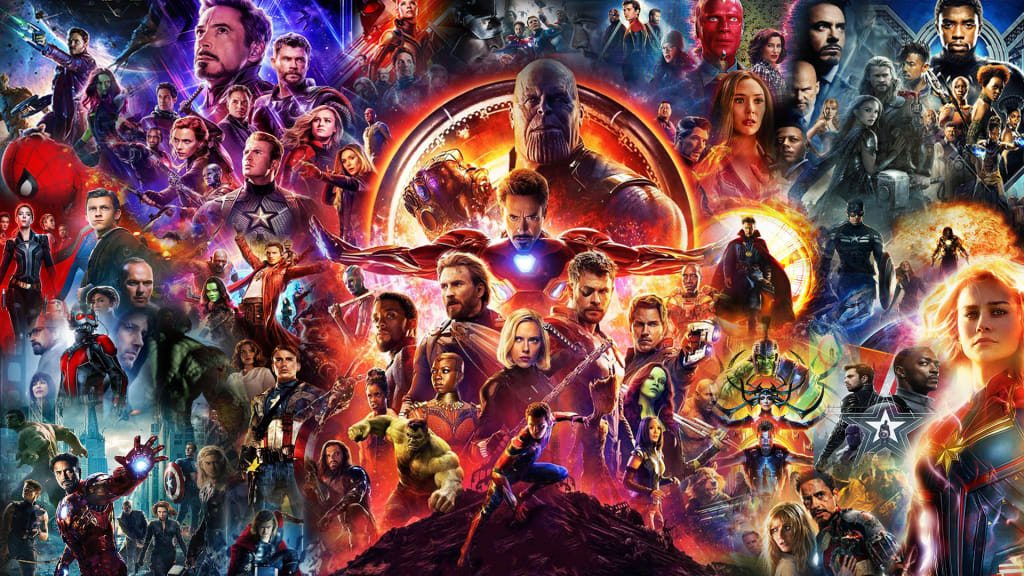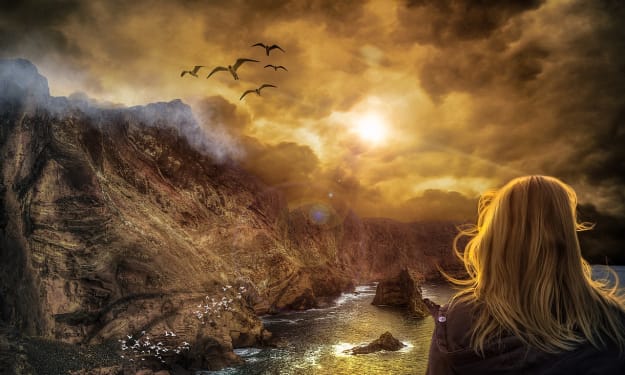Debunking Misconceptions: A Comprehensive Analysis of Criticisms Against the Marvel Cinematic Universe
10 MCU Criticisms That Are Completely Overblown

Introduction
The Marvel Cinematic Universe (MCU) has become a cultural phenomenon, captivating audiences worldwide. However, with its massive success, it has also become a target for various criticisms, some of which appear to be based on misconceptions and selective perspectives. In this comprehensive analysis, we will delve into the most common critiques leveled against the MCU and attempt to debunk them by providing nuanced perspectives on each issue.
1. The Humor Is Cringy…
Marvel movies have often faced criticism for their humor, with detractors deeming it cringy, outdated, or excessive. However, it's crucial to recognize that the humor in the MCU played a pivotal role in its initial popularity. Joss Whedon's genre-defining dialogue in The Avengers set a precedent for the franchise, resonating with audiences and contributing to its widespread appeal. The very same critics who now disdain the humor often nostalgically appreciate shows like The Office and Parks and Rec, which employed a similar brand of 2010s comedy. Marvel's comedic stylings were groundbreaking during their inception and remain an integral part of the franchise's winning formula.
2. There’s Too Much To Keep Track Of…
With the advent of Disney+ and the expansion of the MCU into a myriad of interconnected stories, some fans argue that there is now too much to keep track of, likening it to homework. However, a closer examination of Phase 4 and 5 films reveals a different narrative. While Disney+ has indeed opened the floodgates for additional content, recent MCU projects display a trend towards greater independence. Rather than a tightly interwoven narrative, these films stand alone as separate stories, with only subtle connections and breadcrumbs hinting at a broader universe. The perceived overwhelming interconnectedness may be more a product of preconceived notions than an accurate representation of the current state of the MCU.
3. The Cinematography Is Bad…
Criticism regarding MCU cinematography has been diverse, with opinions ranging from the allegedly bleak visuals of Civil War to the overly vibrant aesthetics of Ant-Man and the Wasp: Quantumania. However, this inconsistency speaks to the subjective nature of cinematographic preferences rather than a systemic flaw in Marvel Studios' approach. What might be perceived as bad cinematography is often a matter of individual taste, showcasing the challenge of satisfying diverse audience expectations. From the visually striking Airport fight in Civil War to the colorful and imaginative visuals of Ant-Man and the Wasp: Quantumania, Marvel Studios has experimented with different styles, attempting to cater to a broad audience.
4. The MCU Has Ruined Moviemaking…
Prominent directors like Martin Scorsese and Quentin Tarantino have publicly expressed their disdain for the MCU, claiming it has negatively impacted the art of filmmaking. However, recent successes in prestige cinema challenge this assertion. Christopher Nolan's moody period biopic Oppenheimer and Scorsese's own Killers of the Flower Moon have not only performed well critically but also at the box office. This suggests that, despite any impact the MCU may have on the industry, it has not prevented the continued success and recognition of more traditional, auteur-driven films.
5. The Villains Are Forgettable…
One persistent criticism throughout the MCU's history has been its perceived villain problem. While some antagonists have been criticized for being underdeveloped or mere evil versions of the hero, the franchise has also introduced iconic villains that have left a lasting impact. Characters like Thanos, Loki, and Killmonger have elevated the MCU's antagonist roster to new heights, demonstrating that the series is more nuanced in its portrayal of villains than some detractors suggest.
6. The MCU Has Too Many New Female Leads…
A fair criticism in the earlier days of the MCU was the lack of female heroes, with the franchise not presenting a female-led solo film until Captain Marvel in 2019. However, with the correction of this imbalance, a vocal minority of fans has criticized the series for now having too many powerful female characters. This paradox illustrates the difficulty Marvel Studios faces in achieving a balanced roster that appeals to a diverse audience. The criticism reveals an inherent challenge in navigating the delicate balance between addressing past gender disparities and catering to a broad audience.
7. The MCU Has A Cookie Cutter Formula…
One of the common critiques leveled against the MCU is that it follows a generic formula, resulting in movies that feel repetitive. However, a comprehensive comparison of Marvel movies reveals a rich diversity in genres, tones, and styles. From space operas with Guardians of the Galaxy to the Wuxia-style action of Shang Chi, and even horror elements in Werewolf by Night and Doctor Strange in the Multiverse of Madness, the MCU has demonstrated a willingness to step into various genres, disproving the notion of homogeneity.
8. The MCU Is Too Political…
Over the years, the MCU has not shied away from addressing political subjects, from racial injustice in Black Panther to Captain America's complex relationship with the U.S. government. Some fans, however, resist the injection of real-world politics into their blockbuster films. Yet, the reality is that Marvel Comics, the source material for the MCU, has always been political. Stories like the original Civil War and the inception of the X-Men as a civil rights allegory set the foundation for societal commentary within the superhero landscape.
9. The Humor Undercuts The Tone…
Critics argue that the humor in Marvel movies often undermines the dramatic tone, with poignant moments overshadowed by punchlines. While there are instances where this may hold true, it is not as pervasive as public sentiment suggests. Films like Black Panther: Wakanda Forever and Black Widow demonstrate that Marvel Studios is unafraid to approach emotional stakes with seriousness, producing relatively humorless narratives when the story demands it.
10. The MCU Promotes The U.S. Military-Industrial Complex…
Critics have accused the MCU of glorifying the U.S. military, depicting heroic government agents utilizing military hardware in a positive light. However, a closer examination reveals a nuanced perspective within the MCU. Characters like Tony Stark are not portrayed as unequivocal heroes, and films like Black Panther: Wakanda Forever shed light on the darker aspects of the military-industrial complex, portraying the CIA as antagonists meddling in foreign affairs. Unlike certain blockbuster franchises, the MCU does not shy away from painting the U.S. in a negative light when necessary.
Conclusion
In conclusion, while the Marvel Cinematic Universe is not immune to criticism, it is essential to approach these critiques with nuance and an understanding of the complexities involved in crafting a multi-faceted franchise. The MCU's ability to adapt, experiment with different genres, and address societal issues reflects a commitment to keeping the narrative fresh and relevant. As the MCU continues to evolve, it remains a dynamic force in the film industry, challenging preconceived notions and providing audiences with diverse and engaging storytelling.





Comments
There are no comments for this story
Be the first to respond and start the conversation.